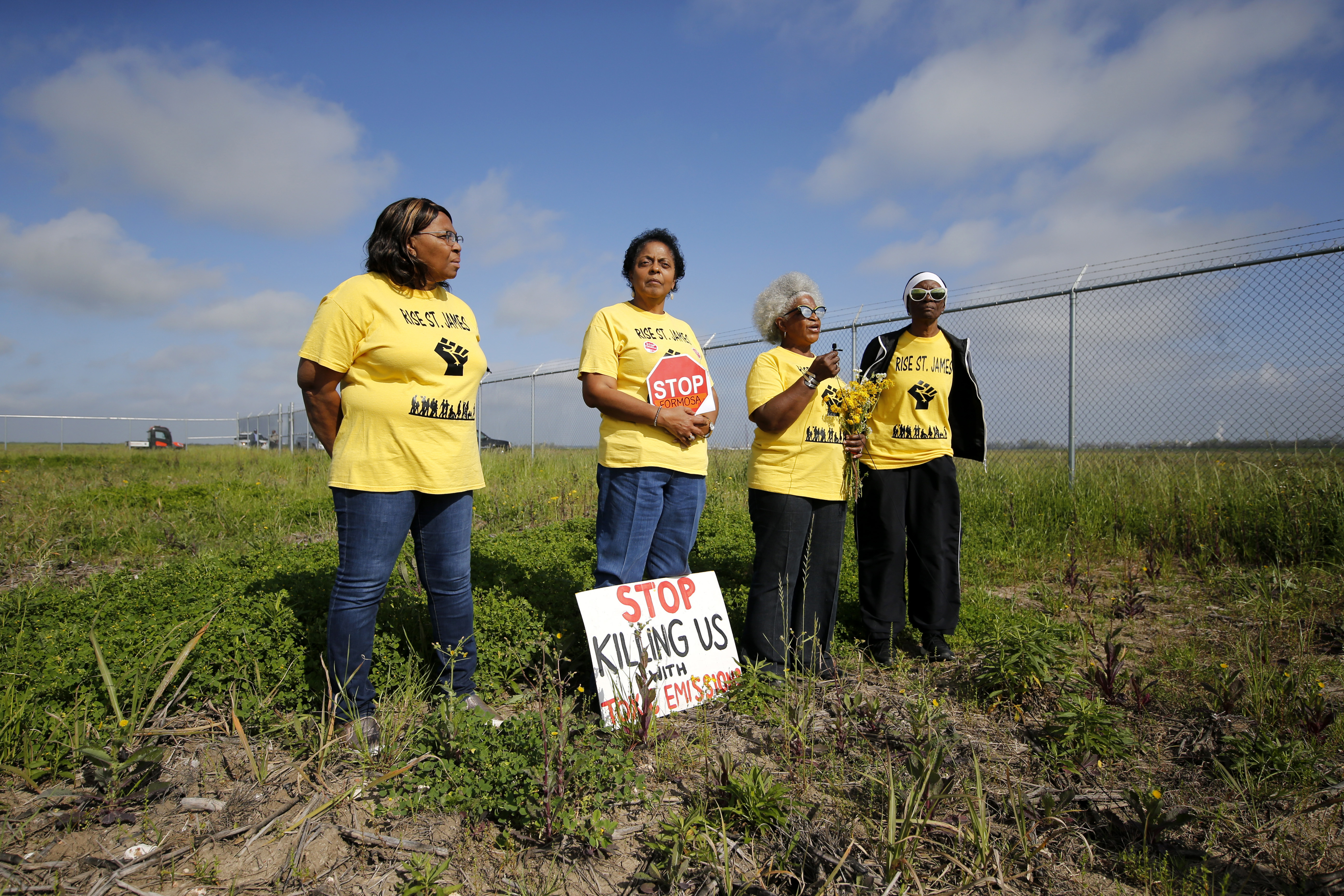Firefighters on Thursday extinguished a huge blaze that erupted hours earlier when two fuel barges exploded, leaving three people with critical burns and forcing the evacuation of crew from a nearby cruise ship.
The cause of the explosions remained under investigation, but investigators believe it was likely from a spark caused by a crew cleaning the barges, Coast Guard Lt. Mike Clausen said.
Firefighters from Mobile and Coast Guard officials responded to the pair of Wednesday night explosions involving the gas barges in the Mobile River east of downtown. More explosions followed over the next few hours.
Authorities say three people were brought to the University of South Alabama Medical Center for burn-related injuries. The three remained in critical condition Thursday morning, hospital spokesman Bob Lowry said.
Across the river, workers were evacuated from the Carnival Triumph, the cruise ship that became disabled in the Gulf of Mexico in February before it was towed to Mobile's port for repairs.
Alan Waugh, who lives at the Fort Conde Inn across the river from the scene, saw the blasts and said throngs of Carnival employees and others were clustered on streets leading toward the river as authorities evacuated the shipyard.
"It literally sounded like bombs going off around. The sky just lit up in orange and red," he said, "We could smell something in the air, we didn't know if it was gas or smoke." Waugh said he could feel the heat from the explosion and when he came back inside, his partner noticed he had what appeared to be black soot on his face.
U.S. & World
Carnival didn't immediately respond to an emailed request for comment late Wednesday.
Video from WALA-TV showed flames engulfing a large section of the barge, and a video that a bystander sent to AL.com (http://bit.ly/13vWz4G) showed the fiery explosions and billowing smoke over the river.
Trevell Taylor was at work at Delta Bonds when he heard the blast.
"It was so loud, I just about jumped up under this desk," he said.
Trevell said he next heard sirens from emergency vehicles and then a second, louder explosion. He turned on the local news and learned of the barge fire.
"It is a scary think anytime you are talking about gasoline and fuel fires. They are lucky more people weren't hurt."
For more U.S. news coverage, visit NBCNews.com
The initial blast took place in a ship channel near the George C. Wallace Tunnel — which carries traffic from Interstate 10 under the Mobile River. The river runs south past Mobile and into Mobile Bay, which in turn flows into the Gulf of Mexico. The tunnels were still open and operating.
As daybreak approached, the Mobile Fire-Rescue Department's fireboat Phoenix was moved toward the barges, checking to make sure their mooring lines were secured.
Mobile Fire Chief Steve Dean told AL.com he was confident the fire wouldn't spread to nearby industrial properties, including the shipyard where the Carnival cruise ship is docked.
Huffman said the ship is directly across the river from the incident — about two football fields in length.
The barges are owned by Houston-based Kirby Inland Marine, company spokesman Greg Beuerman said. They were empty and being cleaned at the Oil Recovery Co. facility.
The barges had been carrying a liquid called natural gasoline, meaning there were no additives in the fuel. By mid-morning Thursday, a hazardous materials team sent to inspect the barges determined that no further hazards exist, the Mobile Fire-Rescue reported.
The explosion comes two months after the 900-foot-long Carnival Triumph was towed to Mobile after becoming disabled on the Gulf during a cruise by an engine room fire, leaving thousands of passengers to endure cold food, unsanitary conditions and power outages for several days. The ship is still undergoing repairs there, with many workers living on board.
Earlier this month, the cruise ship was dislodged from its mooring by a windstorm that also caused, in a separate incident, two shipyard workers to fall into Mobile Bay. While one worker was rescued, the other's body was pulled from the water more than a week later.



